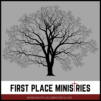Prayer: Father, I look to You for my help comes from You. Amen.
Reading: Genesis 47 key: vs. 23
23 Then Joseph said to the people, “Behold, I have bought you and your land today for Pharaoh. Here is seed for you, so that you can sow the land.
Attention: Over the past couple of years, you may have heard the catch phrase, “You will own nothing, and be happy.” According to the internet, You’ll Own Nothing and Be Happy (originally You’ll Own Nothing and You’ll Be Happy) is a catchphrase originating from a 2016 essay by Danish MP Ida Auken which was included in the video “8 Predictions for the World in 2030” by the World Economic Forum.
How could that possibly happen. If the powers that be control all the money, own all the land, possess all the seed for food, then they will be able to control the population. We will be owned. We will be slaves.
The blueprint for such an event can be taken from today’s reading. After Joseph interpreted Pharoah’s dreams about the approaching of plenty and famine, he created a plan which Pharoah endorsed. We know Joseph’s heroics in saving the lives of the known world through the storage of grain for seven years prior to the famine. But Moses chronicles the rest of the story. After a few years the people’s money ran out and they came to Joseph, pleading for food. So, Joseph proposed that the people give their livestock in exchange for food. This they did. However, the next year, they came back in need of food, and they bargained with their lives or land. Joseph acquired the land for Pharoah in exchange for seed. The price of the land was to use the seed for food and for planting in addition to giving Pharoah twenty percent in harvest seed. They bargained till the only thing left was their lives. The concluding remarks of the people by Moses, “You’ve saved our lives… We found favor in the eyes of my lord, and we’ll be Pharoah’s slaves.”
If this was the final statement, it would be a solemn ending. Verse 27 says, “Meanwhile, Israel settled in the land of Egypt in the land of Goshen, acquired property in it, and were fruitful and multiplied.” What was the difference between the Hebrew family of Israel and the Egyptian citizens? The distinction is found in verse 22, “Only he (Joseph) did not buy the land belonging to the priests, because the priests had an allotment from Pharoah, and they ate their allotment that Pharoah gave them. Therefore, they did not sell their land.”
Do you get it? Since Joseph had favor with God, Pharoah extended favor to Israel’s family and the priests. We are witnessing the favor of God extended by Pharoah, through Joseph, to His favored nation of people, Israel. Historically later, under the rule of a new Pharoah, Israel loses the favor and become subjected slaves because the new Pharoah becomes fearful of the growth of the Hebrew population. What if the Hebrew people were to turn on us Egyptians?
While Pharaoh and Egypt were the source of food and sustenance, God was the providential source who sent Joseph ahead to ensure the survival of His people. They were not beholden to Pharoah, but to God. It was God whom they served amongst a pagan nation.
In these days over the past few years, are you looking vertically or horizontally for your help and protection? If you look horizontally, you will be beholden to man and government. If you look vertically, you are worshiping God, Adonai.
I encourage you to focus on your vertical relationship and reduce the horizontal dependence. We are either a slave to God or a slave to man.
Action: I choose to be a slave of Adonai’s. I choose to look vertically for my help.
Yield: I intentionally yield to Adonai.
Engage: I intentionally engage with the King of heaven.
Relationship: I worship to whom I belong.
Prayer: Father, may I always look to You as my source of provision, health, and life. Amen.
Memory Verse: Psalm 121:2
2 My help comes from Adonai,
Maker of heaven and earth.
Music Video: Francesca Battistelli—God I Look To You https://youtu.be/KP1QKueGK-o
Remember, “Abide in Yeshua, today!”

